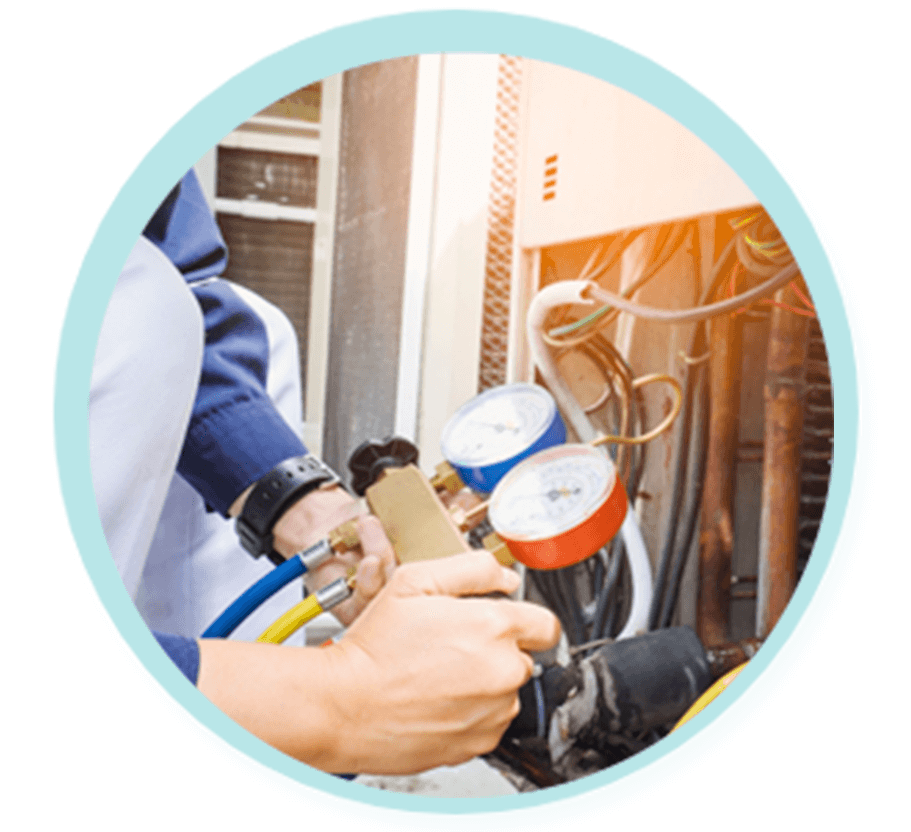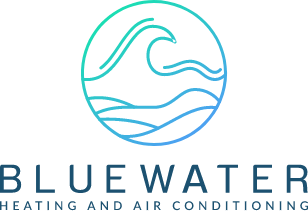If you need AC services in Pensacola, FL, then count on the HVAC team at Bluewater Heating & Air to help you out. We are ready to get to work with your AC tune-up. We can be at your home before the summer hits to prevent a surprise unit breakdown. It’s essential to get your unit checked out at least once a year as failure to do so can sometimes void your warranty. A regular check-up will make sure your unit is working right and prevent any major problems from popping up. Plus, it acts as an extra safety net, protecting your unit from needing repairs or a full unit replacement in the near future. If you need your AC checked out, make sure to contact us today.
Pensacola’s Top Team for AC Maintenance
Maintenance Agreement


Local AC Maintenance Experts in Pensacola
Air conditioning maintenance is incredibly important as it will keep your unit working at its peak. If your AC is working harder than it should and giving you a higher energy bill, then an AC tune-up is probably needed. Maintenance will also allow us to spot small problems and stop them from becoming big problems. Getting your unit checked out ASAP will lower the chance of needing a big AC repair or an AC unit replacement. Getting your unit maintained is a smart investment and will save you money over time.
If you are still on the fence and are unsure about the benefits AC maintenance can provide, look no further:
- Protects your unit from needing repairs
- Keep more consistent airflow
- Protect yourself from a higher energy bill
- Keep your indoor air quality at an optimum level
Don’t wait any longer, count on our experienced team to get your AC problem solved right away with the best local home comfort assistance.
A Local AC Tune-up Team You Can Count on
Bluewater Heating & Air is here to help the residents of Pensacola with AC maintenance that ensures their unit keeps them comfy during the summer. Our top experts are thorough and non-invasive when they work in your home, so you don’t need to worry. We’ll make sure your unit is working right and that nothing gets overlooked. We promise to be upfront and honest with what we do and to give you home comfort assistance at an affordable price.
If you’re a resident who needs AC maintenance in Pensacola right away, contact Bluewater Heating & Air today.
Looking to schedule maintenance on your heat pump? Call us during the fall season to schedule your annual heat pump tune-up!
Frequently Asked Questions
How Often Should I Service My Air Conditioner?
It’s recommended to should have your AC serviced at least once a year, ideally in the spring to ensure it’s in good condition before the summer months. You’ll also want to make sure your HVAC system is ready before hurricane season. Regular maintenance can identify potential issues early, improve efficiency, and extend the lifespan of your unit.
What Does Regular AC Maintenance Include?
Regular maintenance typically includes checking and replacing air filters, cleaning the condenser and evaporator coils, inspecting and cleaning the drain line, checking refrigerant levels, and ensuring all components function correctly. We also look for any leaks, test the thermostat, and inspect the electrical connections to ensure everything is safe and operational.
How Can I Improve My Air Conditioner’s Efficiency?
To improve your air conditioner’s efficiency, regularly clean or replace the air filters, unclog drain lines, keep the evaporator coils clean, ensure the area around the outdoor unit is clear of debris, check for proper insulation, and use a programmable thermostat to manage temperatures effectively. Keeping blinds or curtains closed during peak sunlight can also help maintain a consistent indoor temperature.
Why is My Air Conditioner Leaking Water?
An air conditioner leaking water is often due to a clogged or disconnected drain line, a broken condensate pump, or low refrigerant levels, causing the coils to freeze and then melt. If you notice any leaks, it’s best to call a professional to diagnose and fix them.
How Can I Tell if My Air Conditioner Needs More Refrigerant?
Signs that your air conditioner might need more refrigerant include poor cooling performance, ice forming on the refrigerant line or coils, and hissing or bubbling sounds from the unit. If you suspect low refrigerant, it’s essential to have a professional technician check and recharge the refrigerant levels.
Why is My AC Making Strange Noises?
Unusual noises from your air conditioner can indicate various issues. Banging or clanging sounds might suggest loose or broken parts, while a buzzing noise could point to electrical issues. Whistling or hissing might mean there’s a refrigerant leak. It’s important to address these noises promptly by contacting a professional technician to prevent further damage.
How Can I Prevent My AC From Freezing Up?
To prevent your air conditioner from freezing up, ensure regular maintenance is performed. This includes keeping the air filters clean, checking refrigerant levels, and setting the thermostat correctly. Make sure the airflow is not restricted by keeping vents open and unblocked. If the unit is still freezing, there could be underlying issues that need professional attention.
Is It Necessary to Cover My Outdoor AC Unit in the Winter?
Generally, covering your outdoor air conditioning unit during winter isn’t necessary unless you live in an area with extreme weather conditions. If you do choose to cover it, make sure to use a breathable material to prevent moisture buildup, which can lead to rust and damage. Remember to remove the cover before using the unit in the spring.
How Long Do Air Conditioning Units Typically Last?
With proper maintenance, the average lifespan of an air conditioning unit is about 10-15 years. Factors such as usage, climate, and how well the unit is maintained can affect how long it lasts. Regular maintenance and timely repairs can extend the life of your air conditioner.
What Are Some Signs I Need to Replace My Air Conditioner?
Signs that it might be time to replace your air conditioner include frequent breakdowns, rising energy bills, inconsistent temperatures, and the unit being over 10-15 years old. If your unit requires expensive repairs or uses outdated refrigerant, replacement might be a more cost-effective solution in the long run.
Services We Offer include:
Repair
Our team can help when you are having a problem with your air conditioner. Call today to schedule AC repair!
Installation
Looking to replace your air conditioner? We offer a great selection of top-rated models from which to choose.
©2025 Bluewater Heating & Air. All Rights Reserved. License: CAC1820062. Privacy Policy. Web Design and Internet Marketing by RYNO Strategic Solutions

